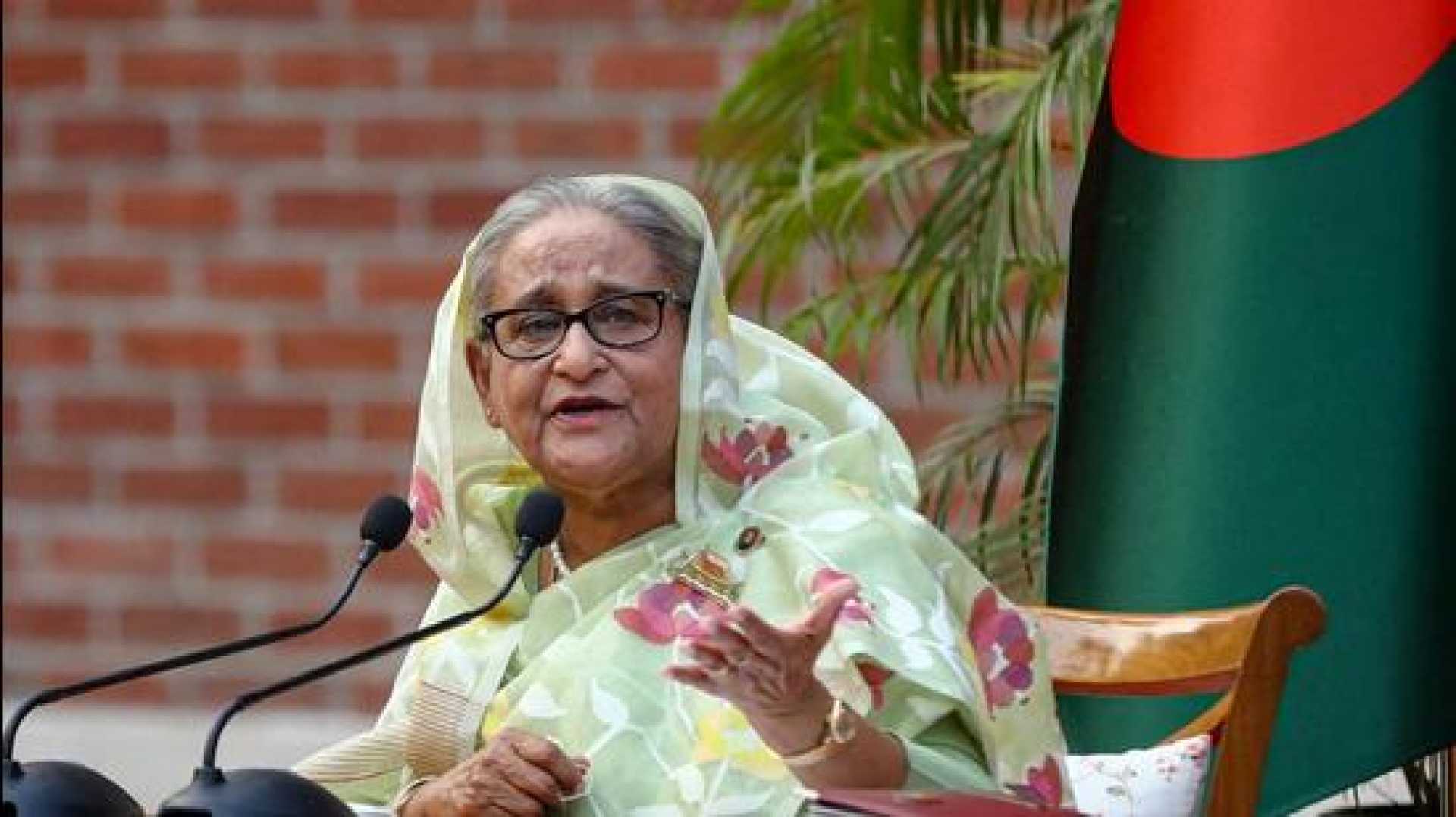World
Extradition Concerns Emerge as Bangladesh’s Sheikh Hasina Remains in India

NEW DELHI: Former Prime Minister of Bangladesh Sheikh Hasina remains in India two months after her arrival, amid escalating tensions following an arrest warrant issued against her by Bangladesh’s International Crimes Tribunal. Sheikh Hasina, who arrived in India on August 5, 2024, has stayed on despite multiple reports of her seeking asylum in other countries.
The foreign ministry of India confirmed her presence, with a spokesperson stating that Hasina had initially come “at short notice.” At the time of her arrival, protests led by students had erupted into violence in Bangladesh, culminating in her departure. Questions persist about her prolonged stay, and speculation continues regarding her next potential destination.
The issuance of the arrest warrant by Bangladesh’s International Crimes Tribunal implicates Hasina and 45 others, including top leaders from her political party, the Awami League, in alleged crimes against humanity. “The warrants were issued on the first day of judicial proceedings,” reported the Dhaka Tribune. Over 60 complaints, including murder and mass killings, have been filed against her and her colleagues with the tribunal.
As Hasina’s legal troubles continue, the issue of extradition looms large. An extradition treaty signed by India and Bangladesh in 2013, and amended in 2016, stipulates the grounds under which individuals may be extradited between the two countries. Sheikh Hasina’s case touches upon several complex legal and diplomatic considerations embedded in the treaty.
According to the treaty, extradition can be refused for offences deemed “political,” yet crimes including murder and terrorism are not protected by this category. Despite her charges potentially fitting these serious classifications, the political nature of her position adds complexity to any extradition proceedings.
A former officer of India’s intelligence agency, Research and Analysis Wing (RAW), indicated that strategic and political interests might weigh heavier than legal stipulations. “India’s relations with whichever party ascends in Dhaka will simultaneously influence the handling of Hasina’s case,” he remarked, suggesting that political calculations rather than strict legal protocol may guide the decision.
As New Delhi navigates its diplomatic relations with Bangladesh, Sheikh Hasina’s continued presence in the country presents a challenge that combines legal considerations with broader geopolitical strategy. The potential for her extradition will likely ripple across both nations’ domestic and international spheres.












